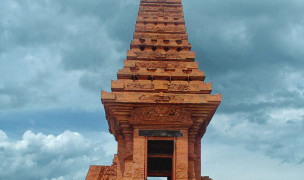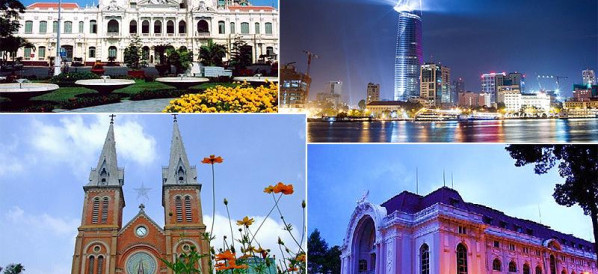 9 Terms
9 TermsHome > Terms > English, UK (UE) > Battle of Ipsus
Battle of Ipsus
The Battle of Ipsus was a battle of the Fourth War Of The Diadochi between some of the Diadochi in 301 BC near the village of that name in Phrygia. Antigonus I Monophthalmus and his son Demetrius I of Macedon were pitted against the coalition of Seleucus I Nicator, ruler of Babylonia and Persia, Cassander, ruler of Macedon; and Lysimachus, ruler of Thrace.
Seeing that Demetrius's war effort was aimed at destroying his power in Greece, and ultimately in Macedonia, Cassander tried to come to terms with Antigonus. However, Antigonus rejected these advances, intent on forcing Cassander's complete surrender. Cassander therefore held counsel with Lysimachus, and they agreed on a joint strategy that included sending envoys to Ptolemy and Seleucus, asking them to join in combatting the Antigonid threat. Seeking to take the initiative, Cassander sent a significant portion of the Macedonian army under Prepelaus to Lysimachus, which was to be used in joint operations in Asia Minor. Meanwhile, Cassander took the rest of the Macedonian army into Thessaly to confront Demetrius.
According to Plutarch, Antigonus's army before the battle numbered around 70,000 infantry, 10,000 cavalry and 75 war elephants, opposing 64,000 infantry for the allies, with 10,500 cavalry, 400 elephants and 120 scythed chariots.
Demetrius launched the principal Antigonid thrust, manoeuvering his cavalry round the elephants, and attacking the allied cavalry under Antiochus. Plutarch says that Demetrius "fought brilliantly and routed his enemy". However it is also clear that Demetrius allowed the pursuit of the routing allied cavalry to go too far, and resulting in his men becoming isolated from the battlefield. owever, Demetrius found himself unable to return to the battlefield because of the deployment of 300 elephants in his path. The ancient sources repeatedly emphasise the effect of elephants on horses, which are alarmed by the smell and noise of elephants and are loathe to approach them. Demetrius would not have been able to take his horses through the line of elephants, nor manoeuvre around such a large quantity of elephants. This elephant manoeuvre' was the decisive moment in the battle.
The morale of the troops appears to have collapsed, and it seems that some of the heavy infantry either defected to the allied side, or otherwise fled. Antigonus, stationed in the centre, tried to rally his men, hoping for Demetrius's return. However, he was gradually surrounded by allied infantry, and, he eventually killed by several javelins thrown by allied skirmishers. With the death of their commander, the Antigonid battle-line dissolved, and the battle effectively ended
The last chance to reunite the Alexandrine Empire had already been passed when Antigonus lost the Babylonian War and two thirds of his empire.Ipsus finalised the breakup of an empire, which may account for its obscurity; despite that, it was still a critical battle in classical history and decided the character of the Hellenistic age.
- Part of Speech: proper noun
- Synonym(s):
- Blossary:
- Industry/Domain: History
- Category: Ancient Greece; Ancient history
- Company:
- Product:
- Acronym-Abbreviation:
Other Languages:
Member comments
Terms in the News
Featured Terms
Ho Chi Minh City
Ho Chi Minh City (Vietnamese; Thành phố Hồ Chí Minh), formerly named Saigon (Sài Gòn) is the largest city in Vietnam. It was once known as Prey Nokor, ...
Contributor
Featured blossaries
Marouane937
0
Terms
58
Blossaries
3
Followers
9 Most Expensive Streets In The World
 9 Terms
9 Terms
stanley soerianto
0
Terms
107
Blossaries
6
Followers
Indonesia Famous Landmarks
 6 Terms
6 Terms
Browers Terms By Category
- Fiction(910)
- General literature(746)
- Poetry(598)
- Chilldren's literature(212)
- Bestsellers(135)
- Novels(127)
Literature(3109) Terms
- Chocolate(453)
- Hard candy(22)
- Gum(14)
- Gummies(9)
- Lollies(8)
- Caramels(6)
Candy & confectionary(525) Terms
- Dictionaries(81869)
- Encyclopedias(14625)
- Slang(5701)
- Idioms(2187)
- General language(831)
- Linguistics(739)
Language(108024) Terms
- Electricity(962)
- Gas(53)
- Sewage(2)
Utilities(1017) Terms
- Inorganic pigments(45)
- Inorganic salts(2)
- Phosphates(1)
- Oxides(1)
- Inorganic acids(1)



